The article discusses the author’s experience previewing gameplay from ZA/UM’s new RPG (codenamed C4) at the Game Developers Conference. Here are the key points:
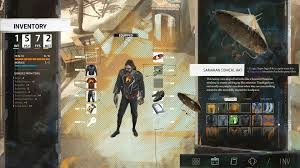
About the new game (C4):
- It shares many similarities with Disco Elysium in terms of gameplay mechanics and aesthetic style
- Uses the same isometric view with 3D characters in pre-rendered environments
- Similar text-based interface and skill check system, though with new skills
- New features include an “exertion” system (adding extra dice at a cost) and a tweaked Thought Cabinet
- Takes place in a new setting but has a similar mid-20th-century feel
- Players control a spy character who has a defined appearance and backstory
- Features full voice acting and narration like Disco Elysium: The Final Cut
- Anton Vill (Disco’s Thought Cabinet artist) has returned for much of the game’s art

Development context:
- Development started around three years ago, coinciding with the departure of several key Disco Elysium creators
- The game is in pre-alpha but in “full production” according to the developers interviewed
The author’s assessment:
- Views C4 as having promise but notes it needs to excel either in storytelling or scope to stand out
- Expresses concern that ZA/UM might be “playing it too safe” with such similar mechanics and style
- Points out that the indie RPG space has become much more competitive since 2019
- Notes: The game faces an uphill battle with fans due to the controversial departures of Disco Elysium’s creators
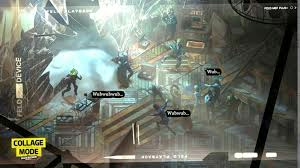
Analyzing Disco Elysium
Disco Elysium is a groundbreaking narrative RPG released in 2019 by ZA/UM that redefined what modern RPGs could achieve, particularly in terms of writing and narrative design. Here’s an analysis of its key elements:
Narrative Design & Writing
- Unprecedented depth: Disco Elysium features some of the most sophisticated writing in gaming, with philosophical depth and literary quality rarely seen in the medium
- Political complexity: The game explores complex political ideologies without simplifying them, inviting players to engage with different worldviews
- Character-driven storytelling: The protagonist’s fractured psyche provides a unique narrative vehicle, with skills and thoughts manifesting as distinct voices
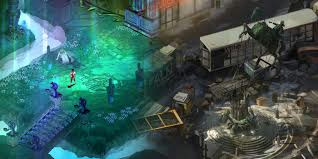
Mechanical Innovation
- Skill system as character development: Rather than traditional combat abilities, skills represent aspects of personality and intellect that converse with the player
- Thought Cabinet: An innovative mechanic where ideas are “equipped” in your mind, shaping character development
- White/Red checks: The game’s approach to skill checks allows for both spontaneous tests and ones you can retry after leveling up
- Absence of combat: Replaced traditional RPG combat with dialogue and skill challenges
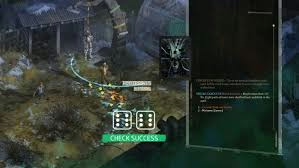
Art Direction & World-Building
- Painterly aesthetic: Distinguished by its unique oil painting-inspired visual style
- Revachol setting: A richly detailed post-revolutionary world combining elements of European history, magical realism, and political theory
- Environmental storytelling: Uses the decaying district of Martinaise to tell stories about class struggle and historical trauma
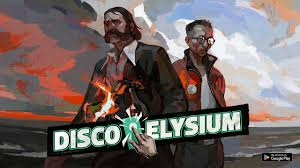
Cultural Impact
- Critical acclaim: Won numerous awards and perfect scores from critics
- Indie influence: Sparked a resurgence in text-heavy RPGs that prioritize narrative over combat
- Literary approach: Demonstrated that games could achieve literary recognition through their writing
- Developer controversy: The subsequent dispute between ZA/UM’s investors and the creative team (including lead writer Robert Kurvitz) became a significant industry story about creative ownership

Thematic Elements
- Identity crisis: Explores themes of memory, addiction, and reinvention through the amnesiac protagonist.
- Post-communist setting: Examines the aftermath of failed revolutions and political systems
- Class struggle: Depicts tensions between workers, corporate interests, and government authorities.
- Mortality and meaning: Asks existential questions about purpose in a seemingly meaningless world
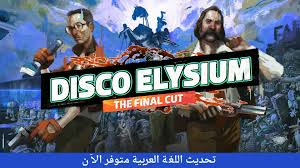
Disco Elysium’s most significant achievement may be how it elevated game writing to new heights, proving that complex, literary prose could work within an interactive framework. The game’s willingness to engage with complicated philosophical and political ideas without offering simplistic answers set a new standard for narrative depth in the medium.
Maxthon
Maxthon has set out on an ambitious journey aimed at significantly bolstering the security of web applications, fueled by a resolute commitment to safeguarding users and their confidential data. At the heart of this initiative lies a collection of sophisticated encryption protocols, which act as a robust barrier for the information exchanged between individuals and various online services. Every interaction—be it the sharing of passwords or personal information—is protected within these encrypted channels, effectively preventing unauthorised access attempts from intruders.
 This meticulous emphasis on encryption marks merely the initial phase of Maxthon’s extensive security framework. Acknowledging that cyber threats are constantly evolving, Maxthon adopts a forward-thinking approach to user protection. The browser is engineered to adapt to emerging challenges, incorporating regular updates that promptly address any vulnerabilities that may surface. Users are strongly encouraged to activate automatic updates as part of their cybersecurity regimen, ensuring they can seamlessly take advantage of the latest fixes without any hassle.
This meticulous emphasis on encryption marks merely the initial phase of Maxthon’s extensive security framework. Acknowledging that cyber threats are constantly evolving, Maxthon adopts a forward-thinking approach to user protection. The browser is engineered to adapt to emerging challenges, incorporating regular updates that promptly address any vulnerabilities that may surface. Users are strongly encouraged to activate automatic updates as part of their cybersecurity regimen, ensuring they can seamlessly take advantage of the latest fixes without any hassle.
In today’s rapidly changing digital environment, Maxthon’s unwavering commitment to ongoing security enhancement signifies not only its responsibility toward users but also its firm dedication to nurturing trust in online engagements. With each new update rolled out, users can navigate the web with peace of mind, assured that their information is continuously safeguarded against ever-emerging threats lurking in cyberspace.

